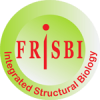


The French Infrastructure for Integrated Structural Biology (FRISBI) provides an infrastructure for integrative structural biology approaches, from the molecular to the cellular level, integrating multi-resolution data from X-ray crystallography, small angle X-ray scattering, NMR, Cryo-EM and functional data including development for protein expression and crystallization. FRISBI is open to structural and molecular and cell biologists from both academia and industry from France and Europe. A simple, transparent peer reviewed process will provide access based on its feasibility and resource availability. Applications for access can be submitted at any time. Users will be required to contribute towards the costs of access.
For more information check HERE

The GRAL “Laboratory of excellence†(Grenoble Alliance for Integrated Structural Cell Biology) is constituted by two institutes (BIG – IBS). The GRAL’S priority is deciphering and integrating knowledge on the structure and dynamics of proteins and their function in the cellular context, both in space and time. This approach will allow the understanding of the modulation of the biological functions, and will open the way to major advances in health, environment and biotechnologies.
For more information check HERE